48 start with P start with P
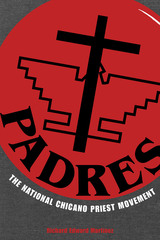
From the 1848 Treaty of Guadalupe Hidalgo to the 1960s, Mexican American Catholics experienced racism and discrimination within the U.S. Catholic church, as white priests and bishops maintained a racial divide in all areas of the church's ministry. To oppose this religious apartheid and challenge the church to minister fairly to all of its faithful, a group of Chicano priests formed PADRES (Padres Asociados para Derechos Religiosos, Educativos y Sociales, or Priests Associated for Religious, Educational, and Social Rights) in 1969. Over the next twenty years of its existence, PADRES became a powerful force for change within the Catholic church and for social justice within American society.
This book offers the first history of the founding, activism, victories, and defeats of PADRES. At the heart of the book are oral history interviews with the founders of PADRES, who describe how their ministries in poor Mexican American parishes, as well as their own experiences of racism and discrimination within and outside the church, galvanized them into starting and sustaining the movement. Richard Martínez traces the ways in which PADRES was inspired by the Chicano movement and other civil rights struggles of the 1960s and also probes its linkages with liberation theology in Latin America. He uses a combination of social movement theory and organizational theory to explain why the group emerged, flourished, and eventually disbanded in 1989.

Painted Words presents a facsimile, decipherment, and analysis of a seventeenth-century pictographic catechism from colonial Mexico, preserved as Fonds Mexicain 399 at the Bibliothèque Nationale de France. Works in this genre present the Catholic catechism in pictures that were read sign by sign as aids to memorization and oral performance. They have long been understood as a product of the experimental techniques of early evangelization, but this study shows that they are better understood as indigenous expressions of devotional knowledge.
In addition to inventive pictography to recount the catechism, this manuscript features Nahuatl texts that focus on don Pedro Moteuczoma, son of the Mexica ruler Moteuczoma the Younger, and his home, San Sebastián Atzaqualco. Other glosses identify figures drawn within the manuscript as Nahua and Spanish historical personages, as if the catechism had been repurposed as a dynastic record. The end of the document displays a series of Nahua and Spanish heraldic devices.
These combined pictorial and alphabetic expressions form a spectacular example of how colonial pictographers created innovative text genres, through which they reimagined pre-Columbian writing and early evangelization—and ultimately articulated newly emerging assertions of indigenous identity and memorialized native history.
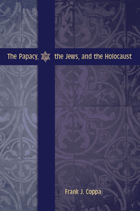
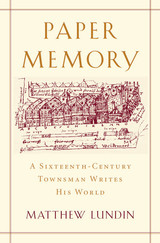
Paper Memory tells the story of one man’s mission to preserve for posterity the memory of everyday life in sixteenth-century Germany. Matthew Lundin takes us inside the mind of an undistinguished German burgher named Hermann Weinsberg, whose personal writings allow us to witness firsthand the great transformations of early modernity: the crisis of the Reformation, the rise of an urban middle class, and the information explosion of the print revolution. This sensitive, faithful portrait reveals a man who sought to make sense of the changes that were unsettling the foundations of his world.
Weinsberg’s decision to undertake the monumental task of documenting his life was astonishing, since he was neither prince nor bishop, but a Catholic lawyer from Cologne with no special claim to fame or fortune. Although he knew that his contemporaries would consider his work vain and foolish, he dutifully recorded the details of his existence, from descriptions of favorite meals to catalogs of his sleeping habits, from the gossip of quarreling neighbors to confessions of his private hopes, fears, and beliefs. More than fifty years—and thousands of pages—later, Weinsberg conferred his Gedenkbuch, or Memory Book, to his descendants, charging them to ensure its safekeeping, for without his careful chronicle, “it would be as if we had never been.”
Desperate to save his past from oblivion, Weinsberg hoped to write himself into the historical record. Paper Memory rescues this not-so-ordinary man from obscurity, as Lundin’s perceptive and graceful prose recovers his extraordinary story.
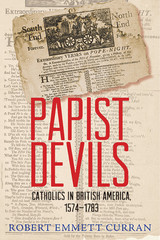
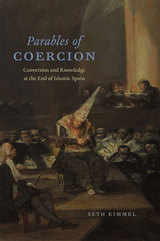
In its careful examination of how Spanish authors transformed the history of scholarship through debate about forced religious conversion, Parables of Coercion makes us rethink what we mean by tolerance and intolerance, and shows that debates about forced conversion and assimilation were also disputes over the methods and practices that demarcated one scholarly discipline from another.
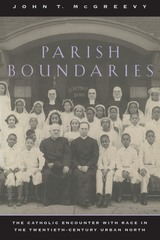
"Parish Boundaries can take its place in the front ranks of the literature of urban race relations."—Jonathan Dorfman, Washington Post Book Review
"A prodigiously researched, gracefully written book distinguished especially by its seamless treatment of social and intellectual history."—Robert Orsi, American Historical Review
"Parish Boundaries will fascinate historians and anyone interested in the historic connection between parish and race."—Ed Marciniak, Chicago Tribune
"The history that remains to be written will rest on the firm foundation of Mr. McGreevy's remarkable book."—Richard Wightman Fox, New York Times Book Review
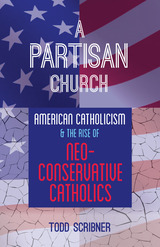

In his lifetime, French philosopher Jacques Maritain (1882–1973) achieved a reputation as both a leading Catholic intellectual and as an outspoken critic of antisemitism. Here historian Richard Francis Crane traces the development of Maritain’s opposition toward antisemitism and analyzes the Catholic appreciation of Judaism that animated his stance. Crane probes the writings and teachings of Maritain—from before, during, and after the Holocaust—and illuminates how his ideas altered Christian perceptions of Jews and Judaism during his lifetime and continue to do so today.
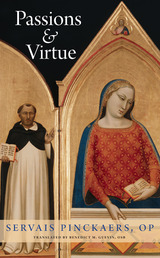
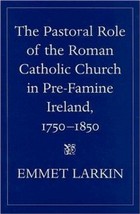
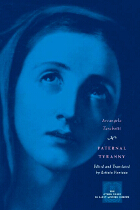
Paternal Tyranny, the first of these works, is a fiery but carefully argued manifesto against the oppression of women by the Venetian patriarchy. Denouncing key misogynist texts of the era, Tarabotti shows how despicable it was for Venice, a republic that prided itself on its political liberties, to deprive its women of rights accorded even to foreigners. She accuses parents of treating convents as dumping grounds for disabled, illegitimate, or otherwise unwanted daughters. Finally, through compelling feminist readings of the Bible and other religious works, Tarabotti demonstrates that women are clearly men's equals in God's eyes.
An avenging angel who dared to speak out for the rights of women nearly four centuries ago, Arcangela Tarabotti can now finally be heard.

From the time of Bismarck’s great rival Ludwig Windthorst to that of the first post–World War II Chancellor, Konrad Adenauer, the Catholic community in Germany took a distinctive historical path. Although it was by no means free of authoritarian components, it was at times the most democratic pathway taken by organized political Catholicism anywhere in Europe.
Challenging those who seek continuity in German history primarily in terms of its long march toward Nazism, Noel Cary crosses all the usual historical turning points from mid-nineteenth- to late-twentieth-century German history in search of the indigenous origins of postwar German democracy. Complementing recent studies of German Social Democracy, it links the postwar party system to the partisan traditions this new system transcended by documenting the attempts by reform-minded members of the old Catholic Center party to break out of the constraints of minority-group politics and form a democratic political party. The failure of those efforts before 1933 helped clear the way for Nazism, but their success after 1945 in founding the interdenominational Christian Democratic Union (CDU) helped tame political conservatism and allowed the emergence of the most stable democracy in contemporary Europe. Integrating those who needed to be integrated—the cultural and political conservatives—into a durable liberal order, this conservative yet democratic and interdenominational “catch-all” party broadened democratic sensibilities and softened the effect of religious tensions on the German polity and party system.
By crossing traditional chronological divides and exploring the links between earlier abortive Catholic initiatives and the range of competing postwar visions of the new party system, this book moves Catholic Germany from the periphery to the heart of the issue of continuity in modern German history.
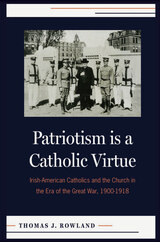

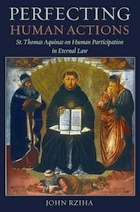
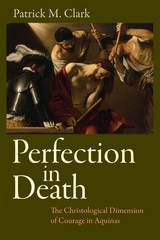
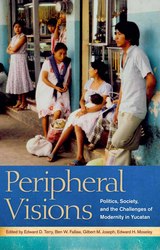
The essays in this collection illuminate both the processes of change and the negative reactions that they frequently elicited
Yucatan has been called “a world apart”—cut off from the rest of Mexico by geography and culture. Yet, despite its peripheral location, the region experienced substantial change in the decades after independence. As elsewhere in Mexico, apostles of modernization introduced policies intended to remold Yucatan in the image of the advanced nations of the day. Indeed, modernizing change began in the late colonial era and continued throughout the 19th century as traditional patterns of land tenure were altered and efforts were made to divest the Catholic Church of its wealth and political and intellectual influence. Some changes, however, produced fierce resistance from both elites and humbler Yucatecans and modernizers were frequently forced to retreat or at least reach accommodation with their foes.
Covering topics from the early 19th century to the late 20th century, the essays in this collection illuminate both the processes of change and the negative reactions that they frequently elicited. The diversity of disciplines covered by this volume—history, anthropology, sociology, economics—illuminates at least three overriding challenges for study of the peninsula today. One is politics after the decline of the Institutional Revolutionary Party: What are the important institutions, practices, and discourses of politics in a post-postrevolutionary era? A second trend is the scholarly demystification of the Maya: Anthropologists have shown the difficulties of applying monolithic terms like Maya in a society where ethnic relations are often situational and ethnic boundaries are fluid. And a third consideration: researchers are only now beginning to grapple with the region’s transition to a post-henequen economy based on tourism, migration, and the assembly plants known as maquiladoras. Challenges from agribusiness and industry will no doubt continue to affect the peninsula’s fragile Karst topography and unique environments.
Contributors: Eric N. Baklanoff, Helen Delpar, Paul K. Eiss, Ben W. Fallaw, Gilbert M. Joseph, Marie Lapointe, Othón Baños Ramírez, Hernán Menéndez Rodríguez, Lynda S. Morrison, Terry Rugeley, Stephanie J. Smith
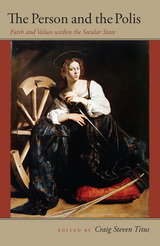
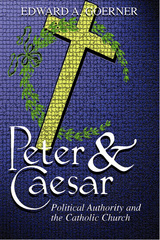
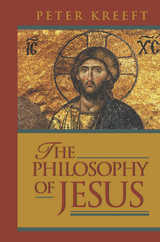
Amazingly, no one ever seems to have looked at Jesus as a philosopher, or his teaching as philosophy. Yet no one in history has ever had a more radically new philosophy, or made more of a difference to philosophy, than Jesus. He divided all human history into two, into "B.C." and "A.D."; and the history of philosophy is crucial to human history, since philosophy is crucial to man; so how could He not also divide philosophy?
This book (1) looks at Jesus as a complete human being (as well as divine), therefore also as a philosopher; (2) looks at philosophy as Jesus' pre-modern contemporaries did, as a wisdom, a world-view, and a way of life rather than as a super-science (Descartes, Hegel) or as a servant-science (Hobbes, Hume); and (3) looks at philosophy in light of Jesus rather than at Jesus in light of philosophy. It explores the consequences of Etienne Gilson's point that when St. John brought Christianity and Greek philosophy into contact and identified the Messiah the Jews had most deeply sought with the logos that the Greeks had most deeply sought, nothing happened to Christ but something happened to the logos.
This book explores the most radical revolution in the history of philosophy, the differences Jesus made to metaphysics (the philosophy of being), to epistemology (the philosophy of knowing), to anthropology (the philosophy of man), and to philosophical ethics and politics.
And, besides, it has the greatest ending of any philosophy book in a century.
Contents
Introduction 1: Who Is It For?
Introduction 2: How Is Jesus a Philosopher?
Introduction 3: What Are the Four Great Questions of Philosophy?
I. Jesus’ Metaphysics (What is real?)
* Jesus’ Jewish Metaphysics
* Jesus’ New Name for God
* The Metaphysics of Love
* The Moral Consequences of Metaphysics
* Sanctity as the Key to Ontology
* The Metaphysics of “I AM”
II. Jesus’ Epistemology (How do we know what is real?)
III. Jesus’ Anthropology (Who are we who know what is real?)
IV. Jesus’ Ethics (What should we be to be more real?)
* Christian Personalism: Seeing “Jesus only”
* Jesus and Legalism
* Jesus and Relativism
* Jesus and the Secret of Moral Success
* Jesus and Sex
* Jesus and Social Ethics: Solidarity
* Jesus and Politics: Is He Left or Right?
Conclusion
Index
Peter Kreeft, Professor of Philosophy at Boston College, is author of over forty books, including two from St. Augustine’s Press, Socratic Logic and The Sea Within.

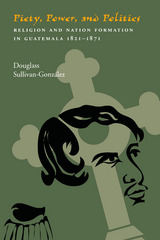
Douglass Sullivan Gonzalez examines the influence of religion on the development of nationalism in Guatemala during the period 1821-1871, focusing on the relationship between Rafael Carrera amd the Guatemalan Catholic Church. He illustrates the peculiar and fascinating blend of religious fervor, popular power, and caudillo politics that inspired a multiethnic and multiclass alliance to defend the Guatemalan nation in the mid-nineteenth century.
Led by the military strongman Rafael Carrera, an unlikely coalition of mestizos, Indians, and creoles (whites born in the Americas) overcame a devastating civil war in the late 1840s and withstood two threats (1851 and 1863) from neighboring Honduras and El Salvador that aimed at reintegrating conservative Guatemala into a liberal federation of Central American nations.
Sullivan-Gonzalez shows that religious discourse and ritual were crucial to the successful construction and defense of independent Guatemala. Sermons commemorating independence from Spain developed a covenantal theology that affirmed divine protection if the Guatemalan people embraced Catholicism. Sullivan-Gonzalez examines the extent to which this religious and nationalist discourse was popularly appropriated.
Recently opened archives of the Guatemalan Catholic Church revealed that the largely mestizo population of the central and eastern highlands responded favorably to the church’s message. Records indicate that Carrera depended upon the clerics’ ability to pacify the rebellious inhabitants during Guatemala’s civil war (1847-1851) and to rally them to Guatemala’s defense against foreign invaders. Though hostile to whites and mestizos, the majority indigenous population of the western highlands identified with Carrera as their liberator. Their admiration for and loyalty to Carrera allowed them a territory that far exceeded their own social space.
Though populist and antidemocratic, the historic legacy of the Carrera years is the Guatemalan nation. Sullivan-Gonzalez details how theological discourse, popular claims emerging from mestizo and Indian communities, and the caudillo’s ability to finesse his enemies enabled Carrera to bring together divergent and contradictory interests to bind many nations into one.
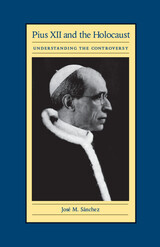
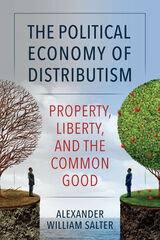
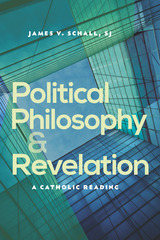

For well over a century the Catholic Church has articulated clear positions on many issues of public concern, particularly economics, capital punishment, foreign affairs, sexual morality, and abortion. Yet the fact that some of the Church's positions do not mesh well with the platforms of either of the two major political parties in the U.S. may make it difficult for Americans to look to Catholic doctrine for political guidance. Scholars of religion and politics have long recognized the potential for clergy to play an important role in shaping the voting decisions and political attitudes of their congregations, yet these assumptions of political influence have gone largely untested and undemonstrated.
Politics in the Parish is the first empirical examination of the role Catholic clergy play in shaping the political views of their congregations. Gregory Allen Smith draws from recent scholarship on political communication, and the comprehensive Notre Dame Study of Parish Life, as well as case studies he conducted in nine parishes in the mid-Atlantic region, to investigate the extent to which and the circumstances under which Catholic priests are influential in shaping the politics of their parishioners.
Smith is able to verify that clergy do exercise political influence, but he makes clear that such influence is likely to be nuanced, limited in magnitude, and exercised indirectly by shaping parishioner religious attitudes that in turn affect political behavior. He shows that the messages that priests deliver vary widely, even radically, from parish to parish and priest to priest. Consequently, he warns that scholars should exercise caution when making any global assumptions about the political influence that Catholic clergy affect upon their congregations.
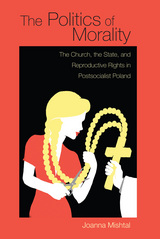
After the fall of the state socialist regime and the end of martial law in 1989, Polish society experienced both a sense of relief from the tyranny of Soviet control and an expectation that democracy would bring freedom. After this initial wave of enthusiasm, however, political forces that had lain concealed during the state socialist era began to emerge and establish a new religious-nationalist orthodoxy. While Solidarity garnered most of the credit for democratization in Poland, it had worked quietly with the Catholic Church, to which a large majority of Poles at least nominally adhered. As the church emerged as a political force in the Polish Sejm and Senate, it precipitated a rapid erosion of women’s reproductive rights, especially the right to abortion, which had been relatively well established under the former regime.
The Politics of Morality is an anthropological study of this expansion of power by the religious right and its effects on individual rights and social mores. It explores the contradictions of postsocialist democratization in Poland: an emerging democracy on one hand, and a declining tolerance for reproductive rights, women’s rights, and political and religious pluralism on the other. Yet, as this thoroughly researched study shows, women resist these strictures by pursuing abortion illegally, defying religious prohibitions on contraception, and organizing into advocacy groups. As struggles around reproductive rights continue in Poland, these resistances and unofficial practices reveal the sharp limits of religious form of governance.
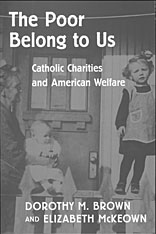
Between the Civil War and World War II, Catholic charities evolved from volunteer and local origins into a centralized and professionally trained workforce that played a prominent role in the development of American welfare. Dorothy Brown and Elizabeth McKeown document the extraordinary efforts of Catholic volunteers to care for Catholic families and resist Protestant and state intrusions at the local level, and they show how these initiatives provided the foundation for the development of the largest private system of social provision in the United States.
It is a story tightly interwoven with local, national, and religious politics that began with the steady influx of poor Catholic immigrants into urban centers. Supported by lay organizations and by sympathetic supporters in city and state politics, religious women operated foundling homes, orphanages, protectories, reformatories, and foster care programs for the children of the Catholic poor in New York City and in urban centers around the country.
When pressure from reform campaigns challenged Catholic child care practices in the first decades of the twentieth century, Catholic charities underwent a significant transformation, coming under central diocesan control and growing increasingly reliant on the services of professional social workers. And as the Depression brought nationwide poverty and an overwhelming need for public solutions, Catholic charities faced a staggering challenge to their traditional claim to stewardship of the poor. In their compelling account, Brown and McKeown add an important dimension to our understanding of the transition from private to state social welfare.

The Vatican’s dealings with the Weimar Republic and the Third Reich have long been swathed in myth and speculation. After almost seventy years, the crucial records for the years leading up to 1939 were finally opened to the public, revealing the bitter conflicts that raged behind the walls of the Holy See. Anti-Semites and philo-Semites, adroit diplomats and dogmatic fundamentalists, influential bishops and powerful cardinals argued passionately over the best way to contend with the intellectual and political currents of the modern age: liberalism, communism, fascism, and National Socialism. Hubert Wolf explains why a philo-Semitic association was dissolved even as anti-Semitism was condemned, how the Vatican concluded a concordat with the Third Reich in 1933, why Hitler’s Mein Kampf was never proscribed by the Church, and what factors surrounded the Pope’s silence on the persecution of the Jews.
In rich detail, Wolf presents astonishing findings from the recently opened Vatican archives—discoveries that clarify the relations between National Socialism and the Vatican. He illuminates the thinking of the popes, cardinals, and bishops who saw themselves in a historic struggle against evil. Never have the inner workings of the Vatican—its most important decisions and actions—been portrayed so fully and vividly.

A call to reform Catholic health care ethics, inspired by the teachings of Pope Francis
Since its first edition in 1948, the US Conference of Catholic Bishops’ Ethical and Religious Directives for Catholic Health Care Services (ERD) has guided Catholic institutions in the provision of health care that reflects both the healing ministry of Jesus and the Church’s understanding of human dignity. However, while the papacy of Pope Francis and the clerical sex-abuse scandal both profoundly impacted the Catholic Church, the latest edition of the ERD does not address or reflect these transformations.
Now for the first time, Todd A. Salzman and Michael G. Lawler present an extended critical commentary on the 2018 ERD. They argue that it is problematic in a number of ways. First, the revised ERD continues to prioritize a rule-based over a personalist-based ethical method, with an emphasis on absolute norms that proscribe specific medical acts. Further, it does not take into account Pope Francis’s transforming ecclesiological, methodological, and anthropological visions, neither internally in Catholic health care institutions nor externally in collaborations between Catholic and non-Catholic health care institutions. Finally, the revised ERD provides no evidence that the bishops grasp how the clerical sex-abuse scandal and its cover-up have fundamentally undermined episcopal authority and credibility.
Salzman and Lawler propose new ways forward for US Catholic health care ethics that prioritize human dignity as their guiding principle. As there is pluralism in Catholic definitions of human dignity, there must be pluralism in the norms and directives that facilitate realizing human dignity. Pope Francis’s emphasis on the virtues of mercy and care should move the ERD forward from a focus on absolute norms in medical ethics to a focus on virtues and principles to guide both patients and health care professionals in their discerned conscientious health care decisions.

This study of Renaissance adventures and struggles against fate brings to life a brilliant age and its exemplars. It is a story of how several men, including Julius II, worked, intrigued, and made business deals against the backdrop of an Italy invaded by continental countries and England. The future of the once great Republic of Venice was at stake as it was besieged and in desperate need of allies. The Papacy switched sides, breaking the seemingly invincible and mostly foreign League of Cambrai, and saw that Venice was offered a loan by Agostino Chigi, the richest man of his time. The Pope's banker, as daring as Julius II, negotiated with the formidable communal rulers of Venice and Italy was kept from further dismemberment.
As a dramatic account that brings together diplomacy, war, business, and politics, viewed through one long entrepreneurial venture, this book is unique. It juxtaposes differing institutional structures and the various political ways among Italy's city states; it also brings into sharp focus the new men of the Renaissance. Their dealings and lifestyles were original and bold. They were successful against great odds and flaunted their new wealth and position in society in building great palaces and estates and becoming patrons of art. Felix Gilbert is a master teacher of history, and his new work is as luminous as the men and events he tells about.
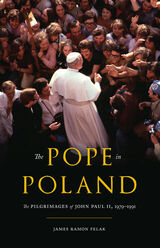
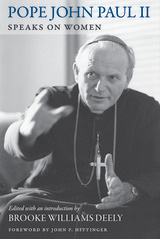
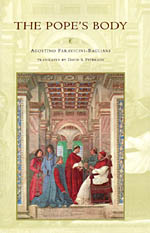
Masterfully translated from the Italian, this engaging history of the pope's body provides a new perspective for readers to understand the papacy, both historically and in our own time.
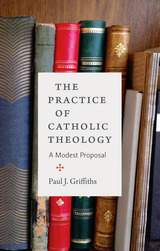
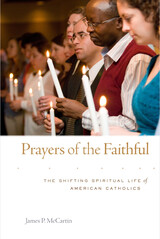
A hundred years ago Catholic believers young and old, rich and poor, would fill churches on holy days, drawn together in prayer and in the conviction that they, the laypeople, needed the clergy and patron saints to mediate between them and their God. Today a Catholic believer in America is as likely as not to find God for herself.
This book traces dramatic changes in the practice of faith among American Catholics through evolving ideas about prayer. Where so many have seen the movement of American Catholics away from traditional devotional practices as a symptom of encroaching secularism, author James P. McCartin shows how the changing practice of prayer itself was the primary catalyst behind Catholics’ growing sense of spiritual independence.
Prayers of the Faithful reveals how, over the decades, Catholics’ ways of praying underwent a significant shift alongside the larger transformations of American society and culture. The book documents the novel ways of praying that transcended the formal rites of earlier generations. Whether “praying in tongues” or working on behalf of social justice or participating in public protests as outpourings of prayer, lay Catholics consistently expanded their notions of praying. And in doing so, McCartin suggests, they reshaped and redefined American Catholicism. By examining the spiritual life of prayer over the twentieth century, this book thus opens up new ways of understanding Catholics, their church, and their place in American life.
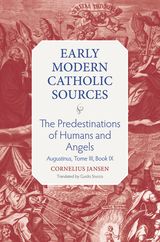
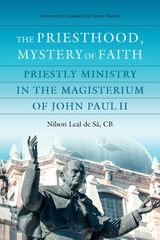
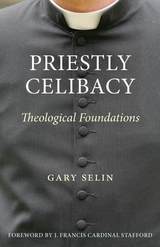
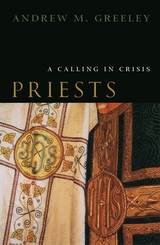
No stranger to controversy himself, Greeley here challenges those analysts and the media who parrot them in placing the blame for recent Church scandals on the mandate of celibacy or a clerical culture that supports homosexuality. Drawing upon reliable national survey samples of priests, Greeley demolishes current stereotypes about the percentage of homosexual priests, the level of personal and professional happiness among priests, the role of celibacy in their lives, and many other issues. His findings are more than surprising: they reveal, among other things, that priests report higher levels of personal and professional satisfaction than doctors, lawyers, or faculty members; that they would overwhelmingly choose to become priests again; and that younger priests are far more conservative than their older brethren.
While the picture Greeley paints should radically reorient the public perception of priests, he does not hesitate to criticize the Church's significant shortcomings. Most priests, for example, do not think the sexual abuse problems are serious, and they do not think that poor preaching or liturgy is a problem, though the laity give them very low marks on their ministerial skills. Priests do not listen to the laity, bishops do not listen to priests, and the Vatican does not listen to any of them. With Greeley's statistical evidence and provocative recommendations for change—including a national "Priest Corps" that would offer young men a limited term of service in the Church—Priests offers a new vision for American Catholics, one based on real problems and solutions rather than on images of a depraved, immature, and frustrated priesthood.
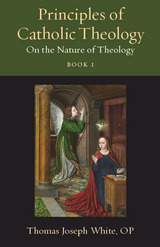


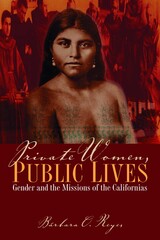
Through the lives and works of three women in colonial California, Bárbara O. Reyes examines frontier mission social spaces and their relationship to the creation of gendered colonial relations in the Californias. She explores the function of missions and missionaries in establishing hierarchies of power and in defining gendered spaces and roles, and looks at the ways that women challenged, and attempted to modify, the construction of those hierarchies, roles, and spaces.
Reyes studies the criminal inquiry and depositions of Barbara Gandiaga, an Indian woman charged with conspiracy to murder two priests at her mission; the divorce petition of Eulalia Callis, the first lady of colonial California who petitioned for divorce from her adulterous governor-husband; and the testimonio of Eulalia Pérez, the head housekeeper at Mission San Gabriel who acquired a position of significant authority and responsibility but whose work has not been properly recognized. These three women's voices seem to reach across time and place, calling for additional, more complex analysis and questions: Could women have agency in the colonial Californias? Did the social structures or colonial processes in place in the frontier setting of New Spain confine or limit them in particular gendered ways? And, were gender dynamics in colonial California explicitly rigid as a result of the imperatives of the goals of colonization?
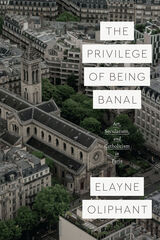
Exploring the violent histories and alternate trajectories effaced through this banal backgrounding of a crucial aspect of French history and culture, this richly textured ethnography lays bare the profound nostalgia that undergirds Catholicism’s circulation in nonreligious sites such as museums, corporate spaces, and political debates. Oliphant’s aim is to unravel the contradictions of religion and secularism and, in the process, show how aesthetics and politics come together in contemporary France to foster the kind of banality that Hannah Arendt warned against: the incapacity to take on another person’s experience of the world. A creative meditation on the power of the taken-for-granted, The Privilege of Being Banal is a landmark study of religion, aesthetics, and public space.

The United States was founded on a commitment to religious tolerance. Based on this commitment, it has become one of the most religiously diverse and religiously observant liberal democracies in the world. Inherent in this political reality is the question, "What is the appropriate relationship between religious beliefs and public life?" This is not a new question, but in contemporary US politics it has become a particularly insistent one. In this intelligent, wide-ranging book, Kristin Heyer provides new and nuanced answers.
Prophetic and Public employs the discourse of public theology to consider what constitutes appropriate religio-political engagement. According to Heyer, public theology connects religious faith, concepts, and practices to their public relevance for the wider society. Her use of public theology concepts to address the appropriate possibilities and limits for religio-political engagement in the United States is both useful and enlightening.
Heyer approaches the relationship between public morality and religious commitment through the example of the Catholic Church. She looks at two prominent Catholics—Michael Baxter and Bryan Hehir—as a way of discussing norms for practice of public theology. Heyer also analyzes case studies of three US Catholic advocacy groups: The US Conference of Catholic Bishops, NETWORK, and Pax Christi USA. Through her analysis she shows the various ways that the organizations' Catholic identity impacts their social and political efforts. From her investigations come norms that define possibilities and limits for political actions based on religious conviction.
This deeply thoughtful book examines what is truly fundamental and inescapable about public life and private religious belief in the United States. In doing so, it makes skillful use of the tools of theology, philosophy, law, and advocacy to demonstrate that the Catholic Church reveals great diversity in its public theology, providing legitimate options for a faithful response to urgent political issues.

One of the most heated debates in recent times among Christian ethicians has been over what has come to be called "proportionalism." Opponents have argued that proportionalists are intent on relativizing theology norms and theh concept of intrinsic evil. Proponents, on the other hand, argue that they are merely developing a traditional notion of proportion of reason. Bernard Hoose puts this debate in context by showing its roots in the writings of European moral theologians and its flowering in the writings of their American colleagues. He uncovers a number of confusions that have bedeviled the argument while revealing how important the issues are for establishing in coherent Christian ethics in the twentieth century.
READERS
Browse our collection.
PUBLISHERS
See BiblioVault's publisher services.
STUDENT SERVICES
Files for college accessibility offices.
UChicago Accessibility Resources
home | accessibility | search | about | contact us
BiblioVault ® 2001 - 2024
The University of Chicago Press









